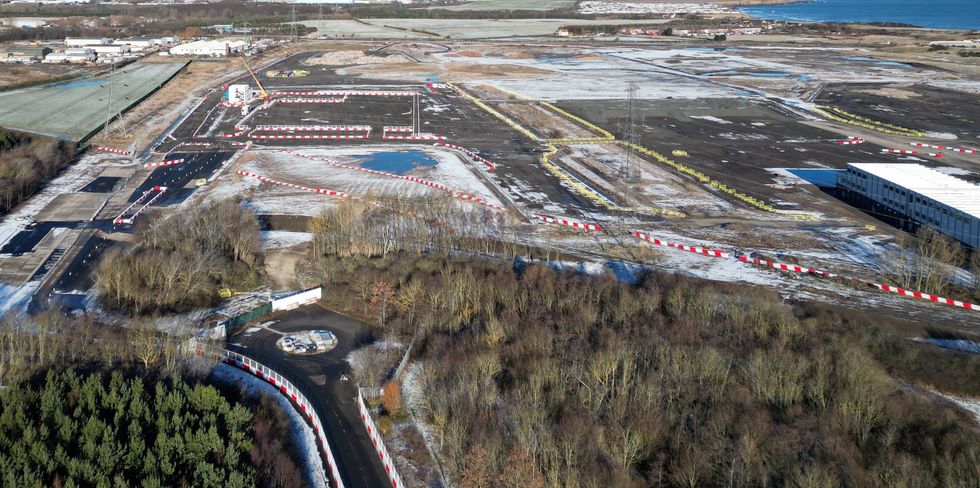Liam Byrne issued a warning about gigafactories in the UK
GETTY/PARLIAMENT TV
Estimates suggest that the UK needs 100GWh of battery manufacturing capacity by 2030
Don't Miss
Most Read
Trending on GB News
The UK could fall behind other major players with electric cars and battery production in the coming years, it has been warned, with calls for the Government to launch urgent action to remain competitive.
The Chair of the Business and Trade Committee Liam Byrne spoke at a Select Committee meeting earlier today about the future of electric vehicle battery development.
The MP for Birmingham Hodge Hill said the UK needs to move fast to be an integral part of the “green industrial revolution” and support the development of electric car batteries in this country.
He said this would create jobs and safeguard 165,000 people working in the automotive industry around the country, as well as a further 800,000 jobs in the supply chain.
WATCH NOW: Labour's Steve Reed reacts to electric car plans
Speaking at Westminster Hall this afternoon, Liam Byrne highlighted the “gigafactory gap” in the UK, warning that the UK risks dramatically falling behind other major players.
He said: “We’ve got to wake up to the fact that batteries, because they are big and heavy and expensive to move around.
“If we don’t build the gigafgactories that make those batteries in this country the risk is that our great automotive manufacturers will up sticks and move.”
He warned that manufacturers would move to where the gigafactories are being built like the United States or across Europe.
“If they don’t do that, we risk becoming dependent on imports from China, whereas we know there are questions about the integrity of the supply chains and indeed some of the labour that is used,” he added.
The former cabinet member said the UK was falling behind in the mission to develop an effective electric vehicle battery production system.
It has been estimated that the UK requires around 100 gigawatt hours of battery manufacturing capacity by the end of this decade.
This would satisfy demand for the automotive industry and other sectors, with the requirement rising to 200GWh by 2040.
However, the UK’s only existing gigafactory near Nissan’s manufacturing plant in Sunderland has less than 2GWh of capacity. Byrne suggested that between five and eight gigafactories could help the UK meet its battery goals.
Despite “being the nation of Faraday”, experts have said the Government's failure to create a stable and long-term industrial strategy has hampered the ability to guarantee investment.
Liam Byrne hinted that tomorrow, Friday, November 24, was a “big day”, with the potential for more information on the Advanced Manufacturing Plan and UK Battery Strategy.
There are hopes that Tata, the owner of Jaguar Land Rover, will go ahead with its plan to build a £4billion gigafactory in Somerset, which would become one of the biggest in Europe.
It is believed that it would have the capacity to produce 40GWh of cells annually, will make batteries for JLR and expects to supply other manufacturers. Development is expected to start in 2026.
Byrne, who has been a Labour MP since 2004, also urged the Government to agree with the European Union to a three-year extension to the rules of origin.
LATEST DEVELOPMENTS:

Plans for the BritishVolt Gigafactory collapsed earlier this year
PA
Without an extension, manufacturers in the UK could lose their competitive edge and be hit with an enormous £4.3billion bill, forcing the price of new electric cars even higher.
He added: “We certainly don’t have the battery capacity we need in place to meet those new rules and we’re not sure Europe does either frankly, because of displacement of investment into America.”








